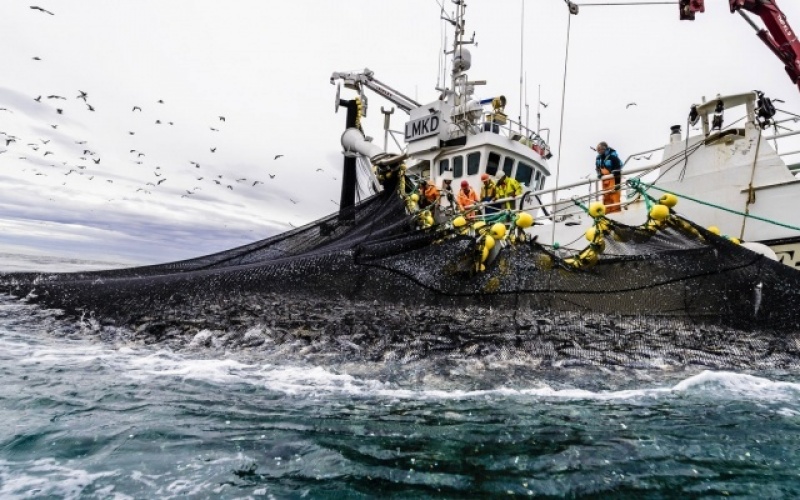
The ban placed on all fishing activities in the country is in the interest of the fisherfolk, hence, they should embrace it, Professor Francis K.E. Nunoo, Acting Director of Fisheries at the Ministry of Fisheries and Aquaculture, has said.
According to him, the ban is to ensure that the right fishing practices are used by fishermen in order to protect fish species from being depleted.
The Ministry had said that fishermen caught fishing during the closed season will be fined between $500,000 and $2 million.
The one-month ban affects all fishing except for Tuna. The Ministry announced the closed season on Friday, 13 July 2018 as part of measures to ensure stock recovery to curtail the depletion of Ghana’s fish stock. Sector Minister Elizabeth-Afoley Quaye announced that the ban starts from 7 August to 4 September 2018 and will affect all fleet.
She said: “It is needful that people are sanctioned when they don’t comply with the law but that is not the interest of government, our duty is to make people comply voluntarily to the closed season.”
“A person who engages in fishing during a closed season declared, commits an offence and is liable on summary conviction to a fine of not less than $500,000 and not more than $2million in respect of a local industrial or semi-industrial vessel; or 100 penalty units and not more than 500 penalty units in any other case and in addition, any catch, fishing gear or vessel or any combination of them used in the commission of the offence, maybe forfeited to the state.”
But the fishermen have said the ban is a bad decision that will negatively affect their lives.
Mr Kwabena Badu, who represents a group of fishermen at the Elmina Landing Beach, said the sector minister has disappointed the entire coastal belt of the country with her bad policies.
According to him, the minister takes decisions without considering the collective interest of fishermen in Ghana.
Mr Badu told Ghana Yensom on Accra 100.5FM hosted by Chief Jerry Forson on Monday, 16 July that: “We are disappointed in the Minister, Afoley Quaye, for the kind of polices she has introduced. She gathers NGO practitioners in hotels and holds workshops for them rather than spending those resources in meeting the fishermen on the programmes and policies of the government.
“How can you ban all fishing activities in the country and say the spot fine is between $500,000 and $ 2 million? We are deeply disappointed.
“The entire coastal belt across the country controls 18 per cent of Ghana’s population, and, so, we want to tell the government that elections will soon come and we will also have a say,” he added.
But speaking on the same programme, Prof Nunoo said: “There was broad stakeholder consultation with the fishermen on the ban. We held close meetings with them, we have had series of meetings with them.
“This ban is in their own interest, and, so, they should support this arrangement in the interim.”
Source: Ghana/AccraFM.com

































